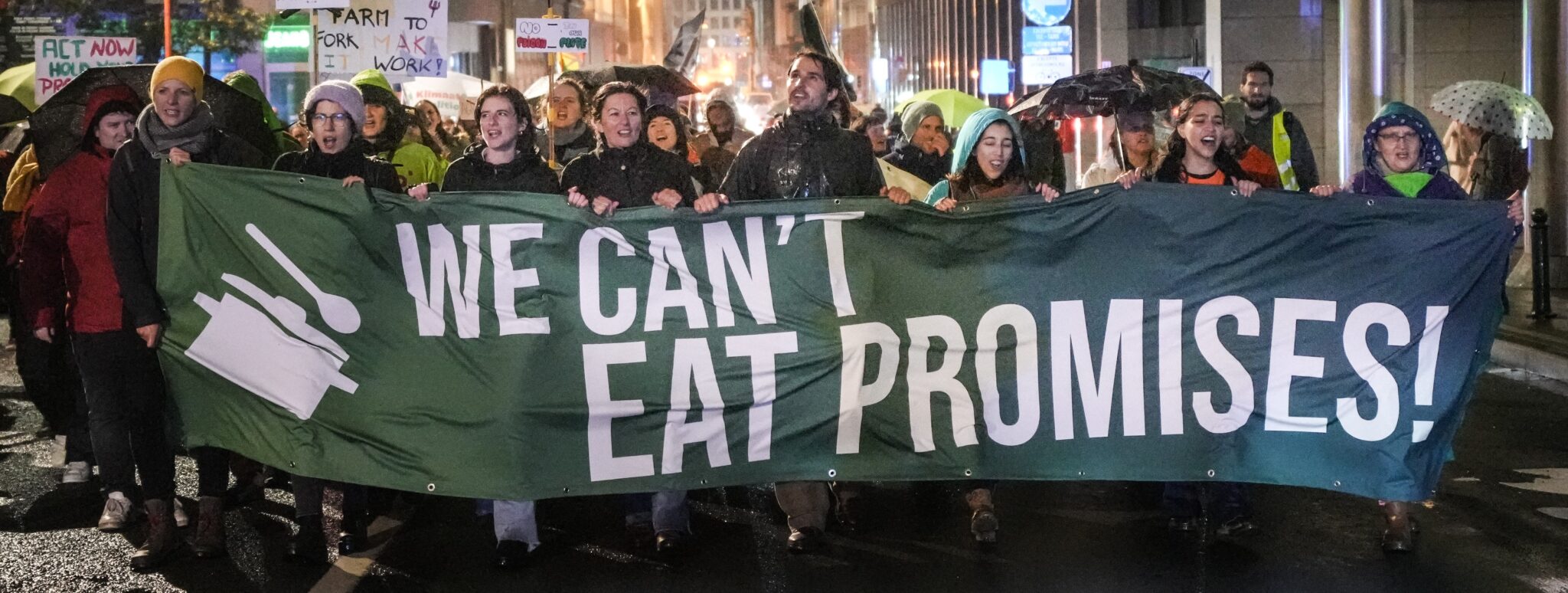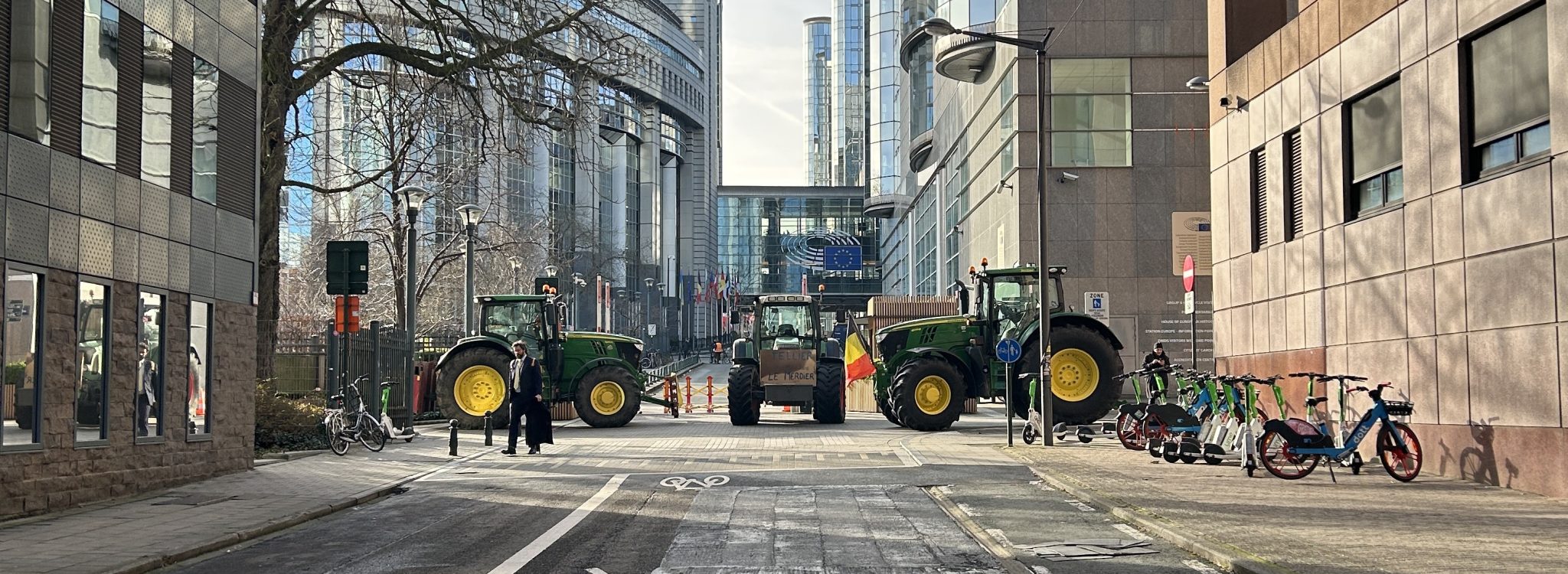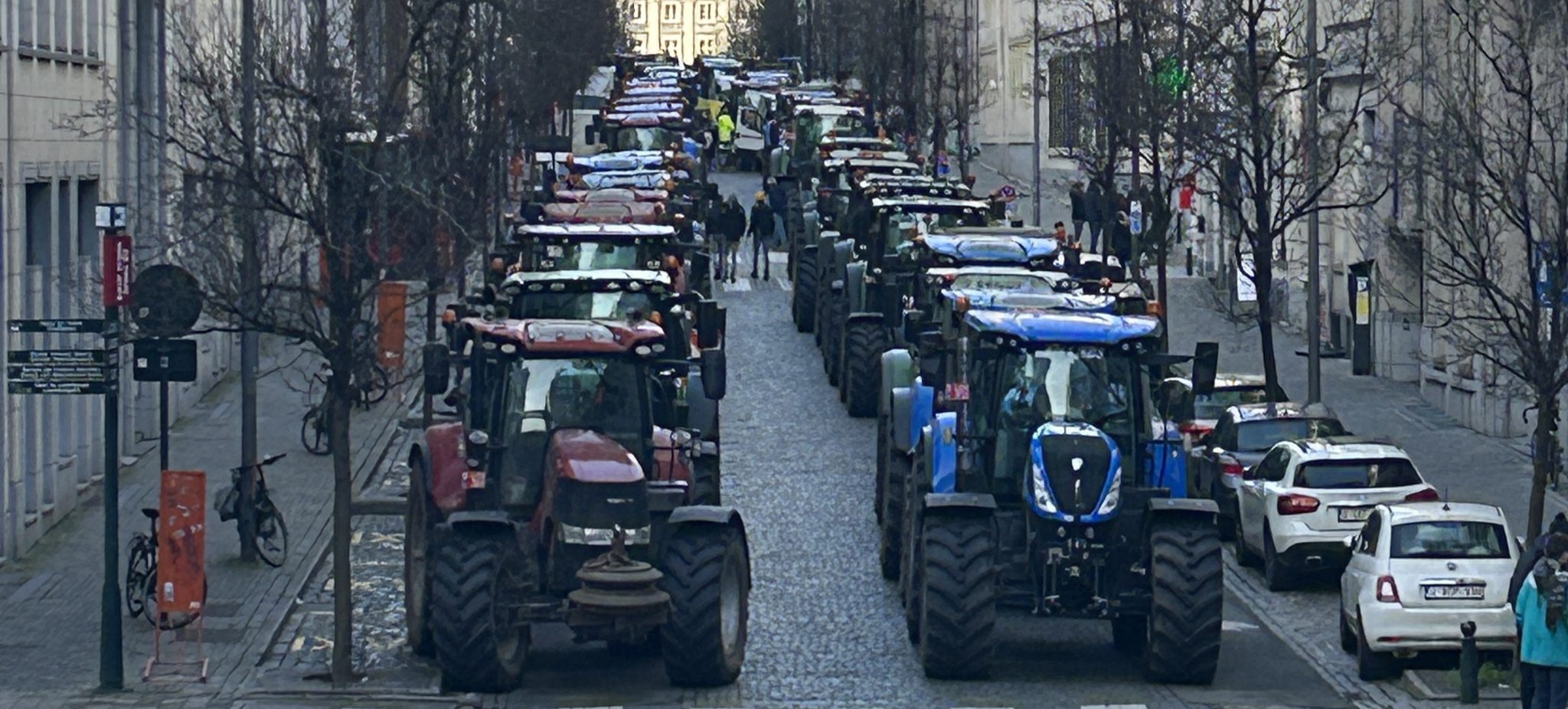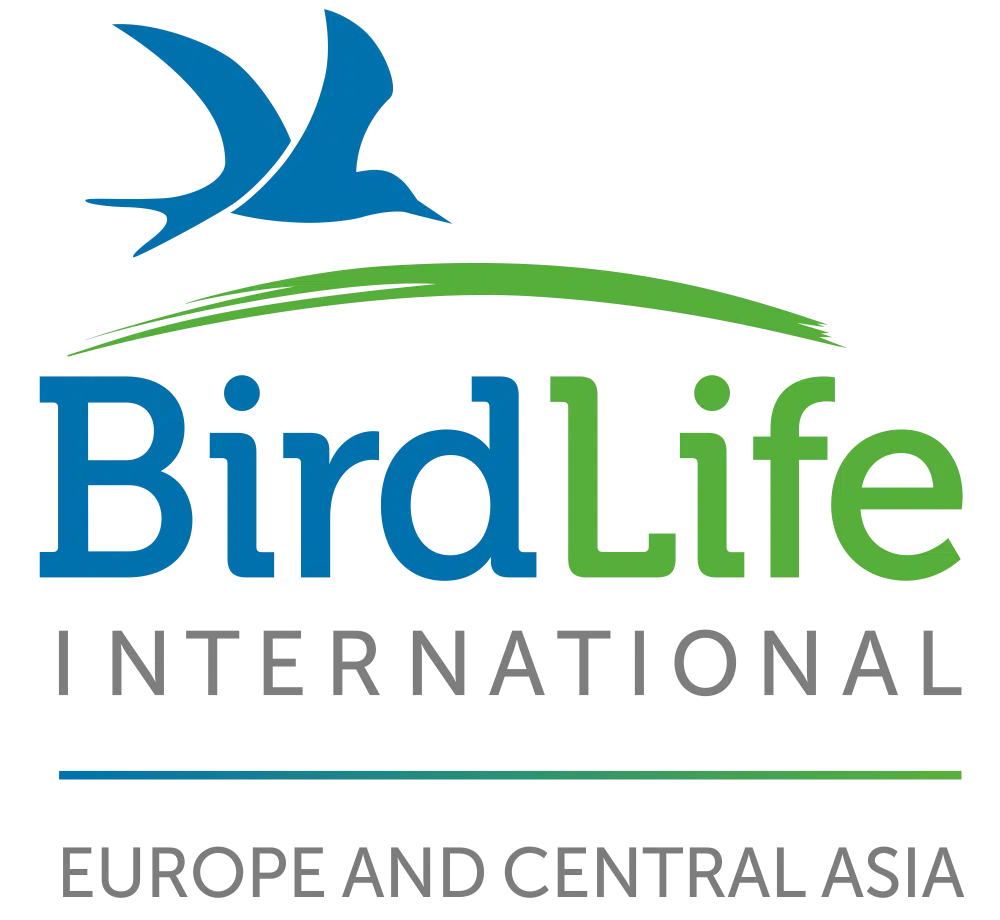Joint statement: in solidarity with farmers in Europe
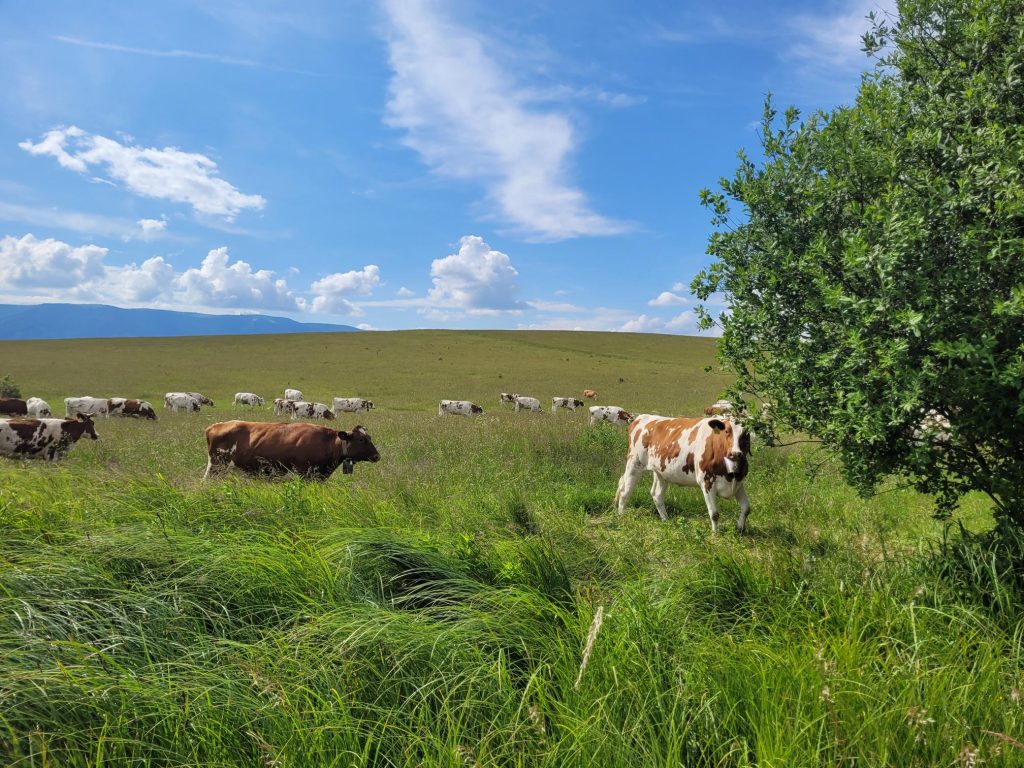
On 1 February 2024, civil society organisations gathered in Brussels in front of the European Parliament in solidarity with peasants. In response to a call from the European Coordination Via Campesina (ECVC) and the Belgian farmers’ union Fédération Unie de Groupements d’Eleveurs et d’Agriculteurs (FUGEA), organisations expressed their support for food sovereignty, organic agriculture, agroecology, peasant rights, and fair food prices.
Decades of national and EU agricultural and commercial policies have created an
unsustainable, market-driven, and trade-oriented agricultural model. Farmers are
locked into industrialisation and intensification that causes negative externalities.
Agribusiness and food industry lobbies have been prioritising profits while
opposing sustainable, resilient practices and lower input dependency, at the
expense of farmers. As a result, farmers face immense pressure to increase yield
and remain competitive at all costs. The price of food does not reflect the true
costs of its production. Treating food as a commodity lies at the root of this
structural problem. Granting systematic derogations to basic conditionality
requirements of the Common Agricultural Policy (CAP), such as GAEC 8, not only
harms ecosystems and could further reduce agricultural prices – exacerbating
farmers‘ income problems – but also distracts attention from the real systemic
solutions that farmers need.
The social, environmental, and economic sustainability of European food systems
depends on the dignity, viability, and wellbeing of the farming community.
Farmers are not only stewards of the land but also providers of our most
important common good: food. As farmers’ livelihoods depend on nature, the
farming community would be the first to benefit from the transition to
agroecological, local food systems. At the same time, preservation of natural
resources and ecosystem services is essential for the health and well-being of
citizens and future generations.
Our ambition is to co-create a common vision for the future of EU food systems,
hand in hand with farmers embracing their ecological and traditional knowledge,
innovation, and agroecological practices. Our unity and capacity to engage in
dialogue at this historical moment is decisive. The cost of inaction is too high for
current and future generations to whom we are accountable.
While about one third of EU public funds are allocated to agriculture, most of it
goes to 20% of farmers, the largest and richest agricultural holdings. Moreover,
these funds fail to stimulate sustainable practices and the supply of public goods.
The EU needs to be consistent across policies and align the CAP with the EU
Green Deal. The UN Declaration on the Rights of Peasants and Other People
Working in Rural Areas can provide guiding principles for policy development in
response to the needs of farmers.
The EU Food Policy Coalition advocates for a food systems approach. The
undersigned organisations commit to sharing the responsibility for a
consensus-based transition and to improving the dignity and livelihoods of
farmers and farm workers. The burden of the transition must not lie solely on
them. All food system actors must be involved to make food sovereignty,
organic agriculture, agroecology, integrated pest management, and peasant
rights a reality. It is important that family farmers, who are often drowned out
by more powerful voices from the agricultural sector, have a front seat in the
transformation.
As signatories, we distance ourselves from any malicious acts or
degradation of public space that occurred concurrently.
Signatories:
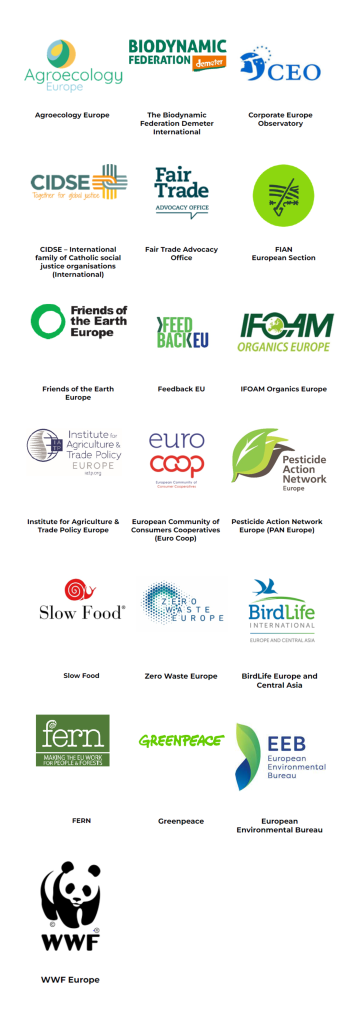
You might also be interested in:
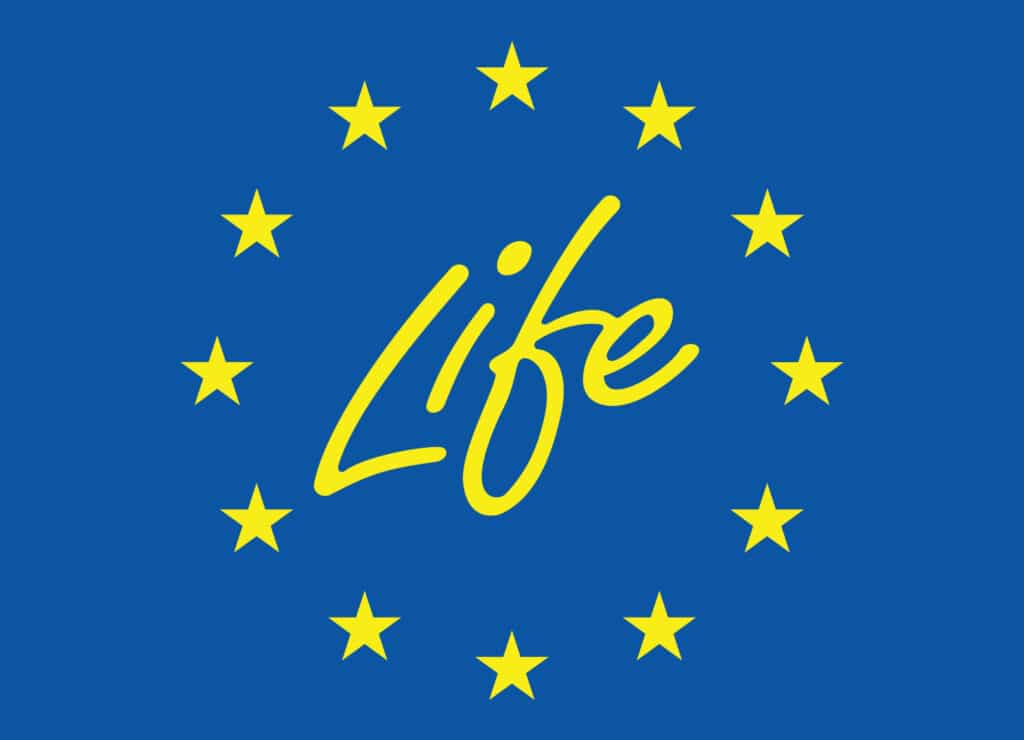 | Stichting BirdLife Europe gratefully acknowledges financial support from the European Commission. All content and opinions expressed on these pages are solely those of Stichting BirdLife Europe. The European Commission is not responsible for any use that may be made of the information it contains. |
